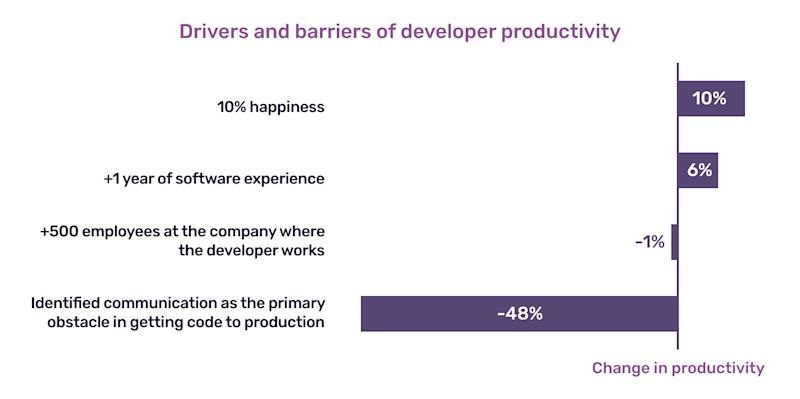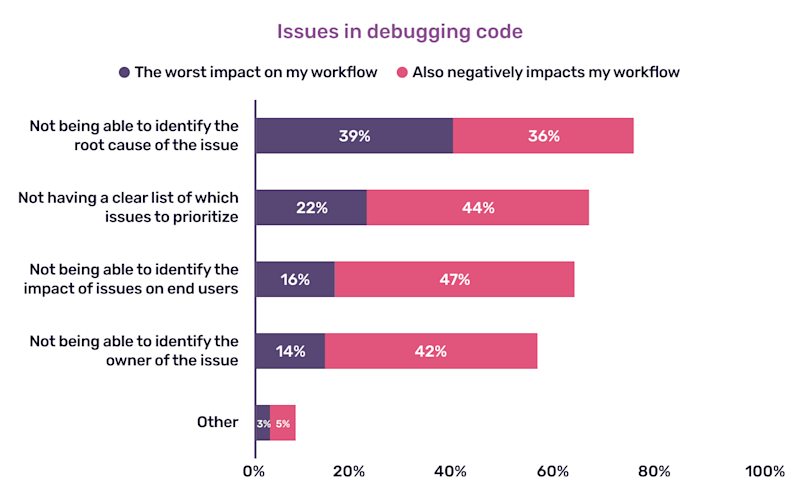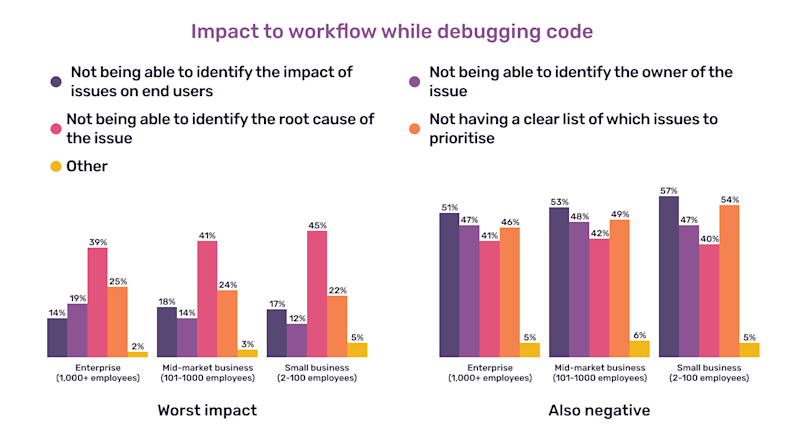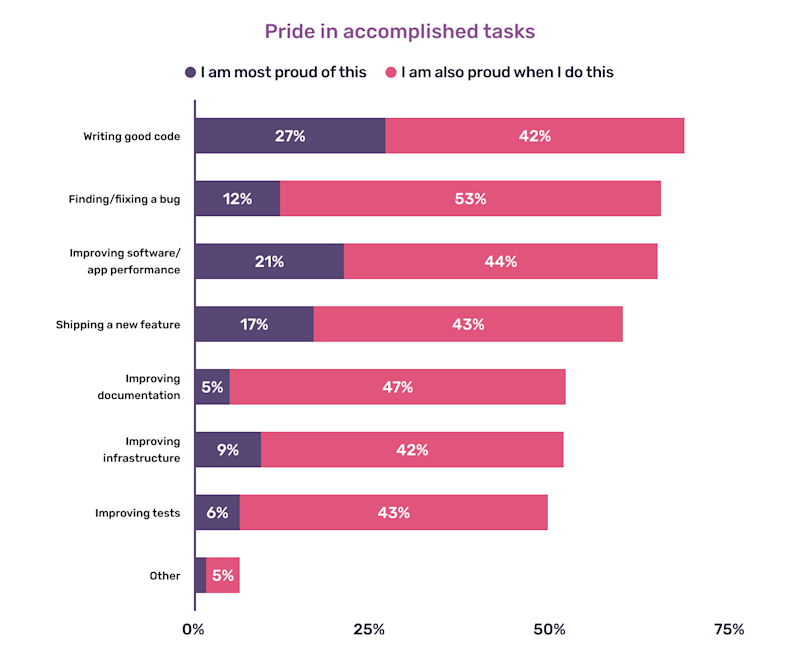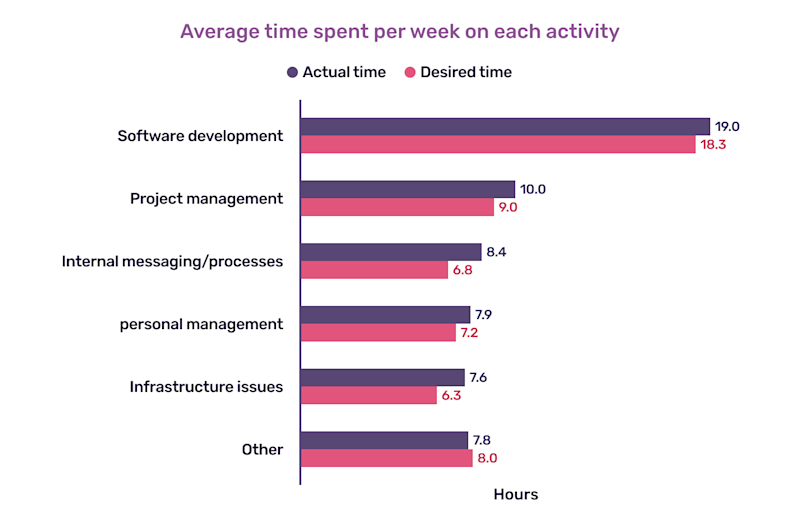Happier employees are often more productive employees. Sounds like common sense, right? But as teams are being asked to do more with less, on top of the added pressure to meet the neverending demands of end users, this thought has gotten lost. This has become especially true for teams at the forefront of innovation, creating new features and products that have a direct impact on ROI—the developers. Developers and engineering teams are measured by velocity + code quality, but the part often missed is developer happiness.
We know from global developer research that programmers are far from homogeneous. Differentiating characteristics such as level of experience and personality can affect what developers prioritize in their tool selection and shape how they consume information. If managers had more insight into developers’ priorities, the impact of team size, and what technical challenges and products their developers take pride in, businesses might find their developer productivity go up—creating a better experience for end users and increasing business efficiencies.
Sentry partnered with SlashData™, who surveyed more than 1,000 full-time developers worldwide to uncover how most developers define happiness, what they take pride in, what they enjoy doing, and their biggest obstacles to productivity.
Happier developers ARE more productive
A developer that is 10% happier than another will need 10% less time to accomplish common programming tasks.
Company and team size do matter
For each additional 500 employees a company has, developers working there are 1% less productive on average.
Not knowing the root cause is a problem
Not being able to identify the root cause of an issue is most frequently identified as the worst impact on developers’ workflow, followed by not having a clear list of issues to prioritize and being unable to identify the impact of issues on end users.
Whose line is it anyways?
When debugging, Identifying the owner of a section of code is a hindrance to workflow, particularly in large enterprises.
Developers are proud of writing quality code
69% of developers overall take pride in writing good code; followed by 65% of developers who feel pride in debugging code and/or improving software performance.
Let developers focus on coding
When asked about their ideal schedule, developers wish that they could spend 19% less of their time being held up by internal messaging and processes.


